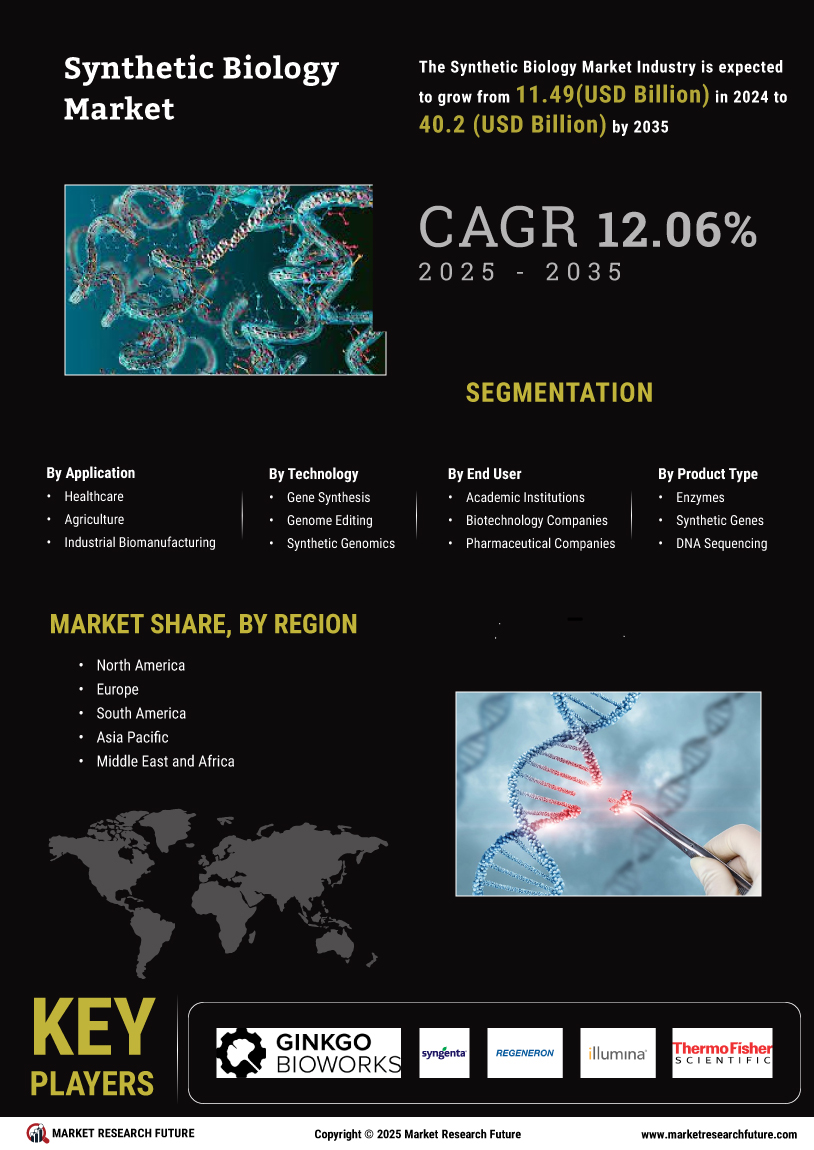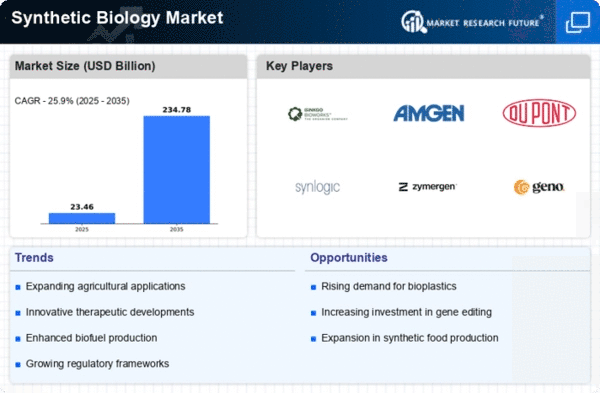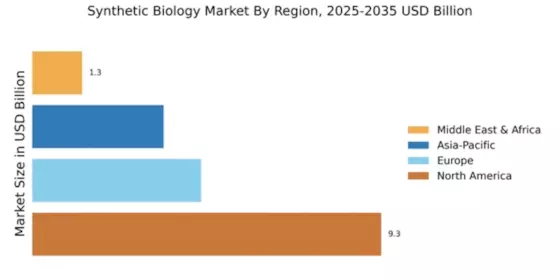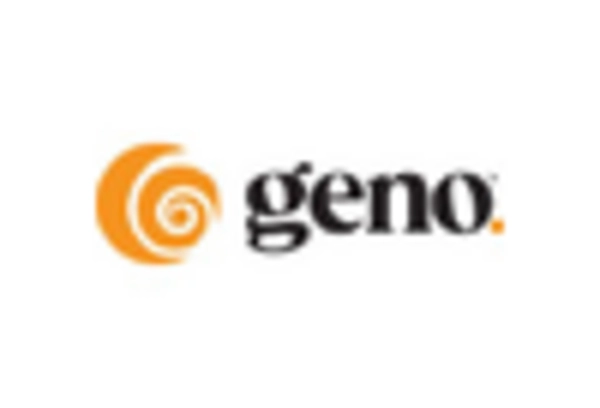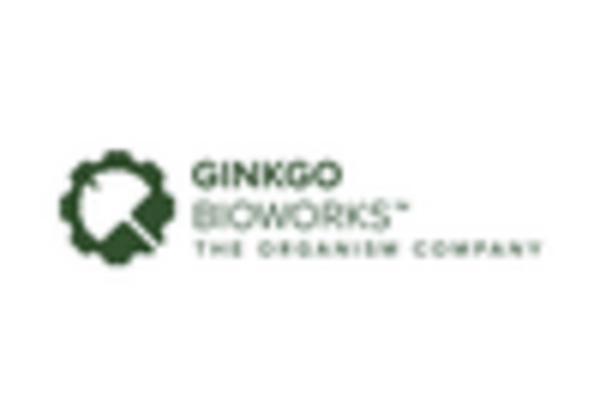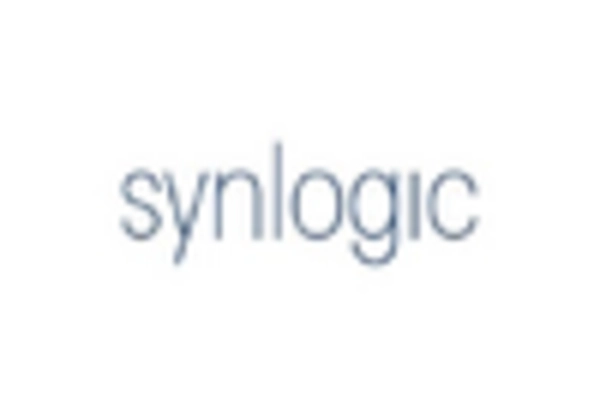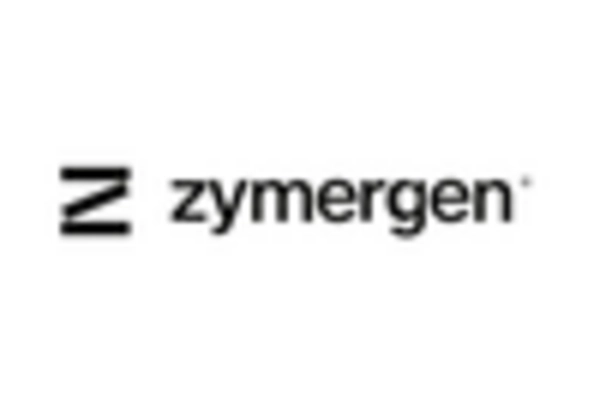Market Growth Projections
The Global Synthetic Biology Market Industry is projected to experience substantial growth over the next decade. With a market value of 11.5 USD Billion in 2024, it is expected to reach 40.2 USD Billion by 2035. This growth trajectory indicates a robust compound annual growth rate (CAGR) of 12.06% from 2025 to 2035. Such projections reflect the increasing adoption of synthetic biology across various sectors, driven by technological advancements, rising demand for sustainable solutions, and enhanced investment in research and development. The market's expansion is indicative of the transformative potential of synthetic biology in addressing global challenges.
Regulatory Support and Frameworks
Regulatory support is emerging as a vital driver for the Global Synthetic Biology Market Industry. Governments are recognizing the potential of synthetic biology to address global challenges and are establishing frameworks to facilitate research and commercialization. This includes guidelines for biosafety and bioethics, which aim to ensure responsible development and application of synthetic biology technologies. Such regulatory clarity not only fosters innovation but also builds public trust, encouraging investment and collaboration across sectors. As regulatory environments become more supportive, the market is likely to experience accelerated growth, paving the way for new applications and technologies.
Growing Applications in Healthcare
The healthcare sector is increasingly leveraging synthetic biology, significantly impacting the Global Synthetic Biology Market Industry. Applications range from the development of novel therapeutics to advanced diagnostic tools. Synthetic biology enables the design of customized medicines and biologics that can target specific diseases more effectively. For instance, engineered microbes are being used to produce insulin and other essential drugs. This trend is likely to continue as the demand for personalized medicine rises, driving market expansion. The integration of synthetic biology into healthcare is expected to contribute to the overall growth of the industry in the coming years.
Rising Demand for Sustainable Solutions
The Global Synthetic Biology Market Industry is witnessing an increasing demand for sustainable solutions across various sectors, including agriculture, energy, and pharmaceuticals. This shift is driven by the need to address environmental challenges and reduce reliance on fossil fuels. For instance, synthetic biology enables the development of biofuels and biodegradable materials, which are essential for a sustainable future. As consumers and industries prioritize eco-friendly practices, the market is projected to reach 11.5 USD Billion in 2024, reflecting a growing commitment to sustainability in production processes.
Advancements in Genetic Engineering Technologies
Technological advancements in genetic engineering are propelling the Global Synthetic Biology Market Industry forward. Innovations such as CRISPR and gene synthesis techniques have revolutionized the ability to manipulate genetic material with precision. These technologies facilitate the creation of engineered organisms that can produce valuable compounds, such as pharmaceuticals and bio-based chemicals. The rapid evolution of these tools is likely to enhance productivity and reduce costs, thereby attracting investment and fostering growth. As a result, the market is expected to expand significantly, with a projected CAGR of 12.06% from 2025 to 2035.
Increased Investment in Research and Development
Investment in research and development is a critical driver of the Global Synthetic Biology Market Industry. Governments and private entities are allocating substantial funds to explore the potential applications of synthetic biology in healthcare, agriculture, and environmental management. For example, initiatives aimed at developing synthetic vaccines and engineered crops are gaining traction, leading to breakthroughs that could transform industries. This influx of funding not only accelerates innovation but also supports the establishment of startups and collaborations, further enhancing market growth. The industry is anticipated to reach 40.2 USD Billion by 2035, underscoring the importance of R&D.
